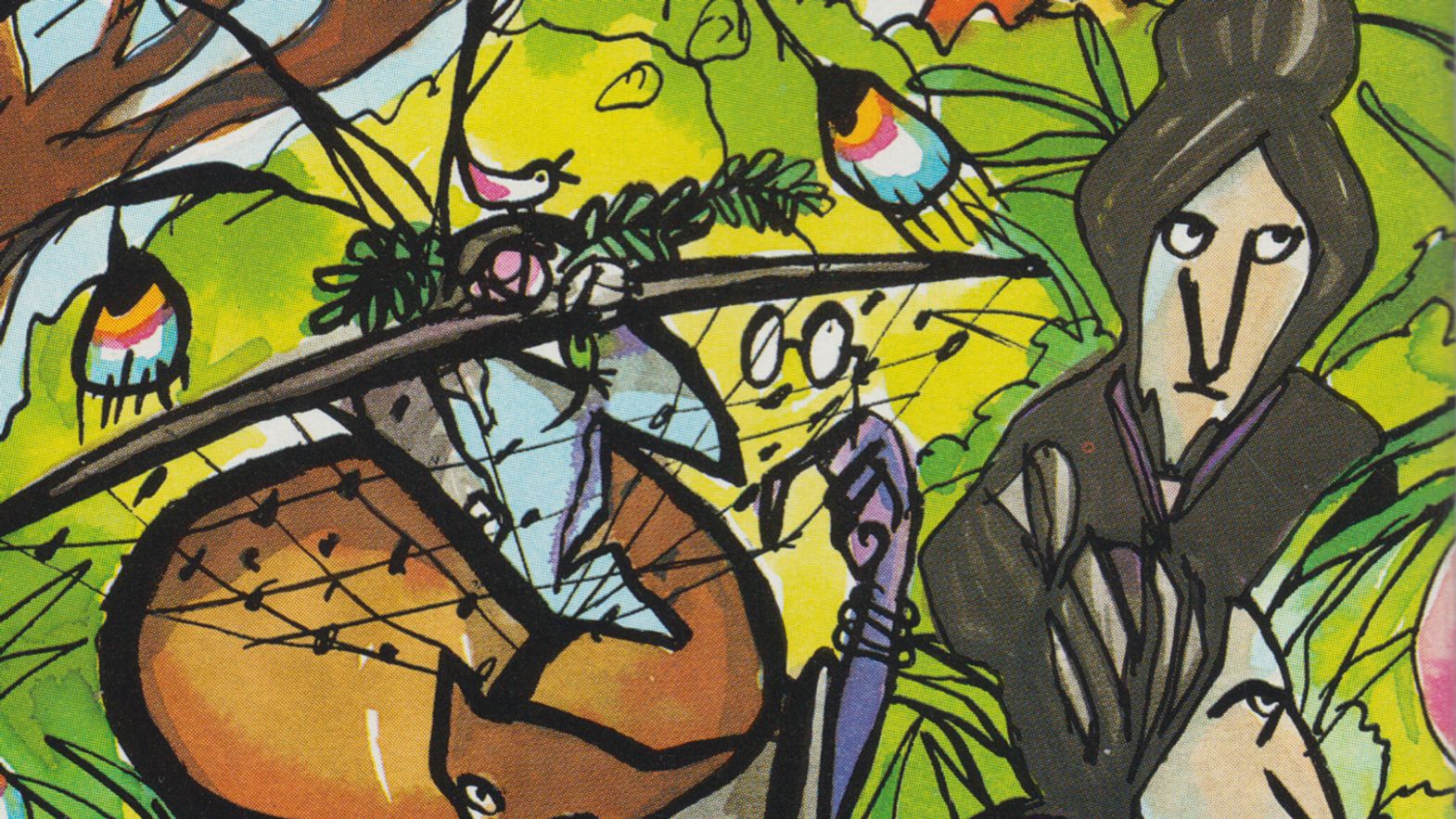
“You’ve landed on the most polluted planet in the universe.”
1984. The year of Orwell’s Big Brother, and a world slowly waking up to a planet Earth in peril: depleting oil reserves, rising greenhouse gases, widening hole in the ozone layer and strung out on an East vs. West wire, taut with tension.
Victor J. Tognola’s Clorofilla dal Cielo Blu was made in the same year. An environmental story, wrapped in a cartoon world. Based on the story by Bianca Pitzorno and illustrated by Adelchi Galloni.
One day, a spaceship from a planet inhabited by plant creatures is forced to land on Earth due to a malfunction. Our world has become a grey, flowerless planet. There are no more trees or plants, with no room for either for children or animals. Among the passengers is Chlorophyll, a newborn plant that risks dying by coming into contact with atmospheric pollution.
Entrusted by her parents to the care of Professor Erasmus, the best botanical expert “in the cosmos”. Erasmus invents "verdeplasma", which he uses to heal both little Chlorofilla and the surrounding flora, even though “it’s difficult for plants in this world of poison”. In his struggle he faces the child-hating antagonist, the ashen-faced Countess, and her grey-faced assistants, their color a dull reflection of a 100,00 concrete tower blocks, who do everything they can to hinder the professor in his search for cure. Luckily, they fail miserably. Clorofilla leaves in full health, the professor marries his assistant and the Earth turns from grey to green.
Fast-forward to 2021 and here at the Locarno Film Festival, this year’s themes of recycling and sustainability have assumed an urgent, almost unimaginable importance. Although, just maybe, J. Victor Tognola did imagine it. His creation, Clorofilla dal Cielo Blu could well be a contemporary cartoon production, and not one almost 40 years old.
One wonders how many children, brought up on Clorofilla, are now involved in ecological campaigns? “All’s well that ends well,” said professor Erasmus. Let’s hope so.
Christopher Farley